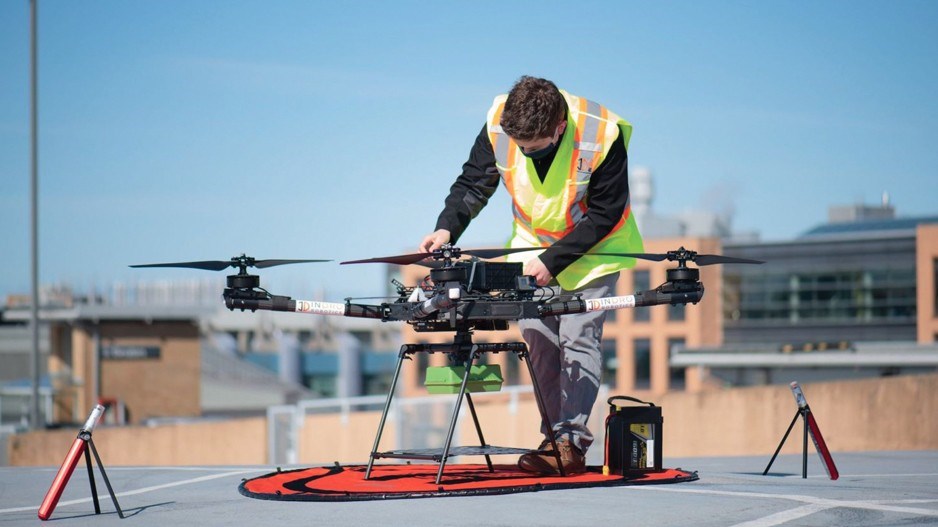The skies above B.C. ports may look a little different in the coming years as unmanned aerial vehicles (UAVs) begin tapping Canada’s nascent 5G networks, according to Philip Reece.
“Imagine Vancouver, for example – you’ve got the big harbour there. Port authorities could simply dispatch a couple of drones from their roof early in the day, they would map out the whole harbour, they’d count the boats that were in the harbor, report back to the engineer or the harbormaster,” said the CEO of West Coast drone developer InDro Robotics Inc.
That prospect of offering those services and others is closer to reality this month after InDro Robotics tapped into Rogers Communications Inc.’s (TSX:RCI) network infrastructure at the University of British Columbia to complete Canada’s first remotely piloted aircraft system flight over 5G.
Reece said the flight portends to the future of the drone industry in Canada, in which autonomous flights can take off without the need for pilots to observe the aerial devices at all times.
“[That] hasn’t really been possible before until the advent of 5G and the speed and bandwidth that it’s given us,” he said.
Without the need of individual pilots, drones tapping into 5G networks and equipped with AI-powered navigation systems will proliferate and begin offering more services at scale, such as search and rescue, land surveying and the delivery of goods.
InDro previously partnered with London Drugs Ltd. in 2019 to deliver pharmaceuticals from Duncan, B.C., to Salt Spring Island, but it required special dispensation from Transport Canada to complete the beyond visual line-of-sight (BVLOS) flight.
But what we now think of as drone pilots will eventually become something more akin to air traffic controllers who are monitoring for reports of problems and jumping in if there are any issues with traffic in the air, according to Reece.
A 2019 Markets and Research report estimated the market size for drone services would reach US$63.5 billion by 2023 — up from US$4.4 billon five years earlier.
It noted that “safety concerns and lack of skilled and trained operators are limiting the overall growth of the market.”
Another potential barrier ahead for the industry in Canada is the rollout of the next-generation 5G wireless network.
Earlier this month the C.D. Howe Institute noted that by the time Canada’s upcoming 5G auction takes place in June, 37 countries will have already assigned the 5G band up for grabs within their own jurisdictions.
Meanwhile, Reece said, Canada will also face roadblocks if the regulatory regime doesn’t remain competitive while other jurisdictions allow for more provisions for autonomous flights and access to airspace. •




